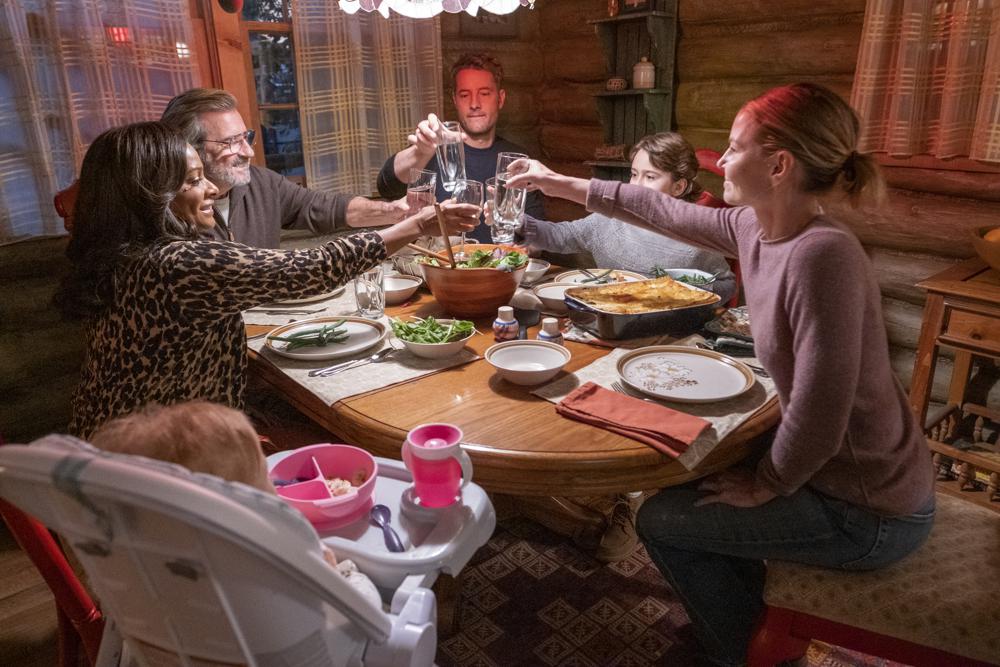
SANTA MONICA, Calif. — The car door opens, then slams. The ignition rumbles. Music roars. Hands fixed on the wheel. Ten and two. Then we’re off, hurtling down empty Santa Monica side streets before dawn.
Milo Ventimiglia is as composed as a Top Gun pilot. First gear grinds, then second — but in that cool way where velocity bursts with a swish and car lights blur.
Riding shotgun is an exercise in grip strength. Knuckles white, wheels screaming, heart pounding, music blaring. Today’s feature: “Red Eyes” by The War on Drugs.
For the man who has been held up as America’s dad for the past six years on NBC’s “This Is Us,” this is simply controlled chaos. For me, a U.S. Marine veteran of the war in Afghanistan, the entire experience — the early morning car ride, the story you’re reading and how I came to work on his television show — is equal parts surreal and ridiculous.
It is also my own melancholic — and, ultimately, therapeutic — reflection of my war experiences and life afterwards.
We jump on I-10. Eastbound down the Santa Monica Freeway. Sailing into the busy morning traffic, we bob and weave and rev past fleeting cars and 18-wheeled semi-trucks. A chess game fueled with raw velocity.
I think back to four years ago. I had set up an interview with the creator of “This Is Us,” Dan Fogelman, and the renowned American novelist Tim O’Brien, who wrote “The Things They Carried” and had been hired to help craft the Vietnam War storyline in season three of the show. The interview was to go over the verisimilitude of the show — the blending of fiction with the memories of a real- life war and its aftermath.
An hour before the call, scrolling through Instagram posts, I found out that a Marine I had served with in Afghanistan had taken his own life nine months earlier. Gunnery Sgt. Vaughn Canlas was an infantryman turned human intelligence collector. He was 39 and had over 16 years of service when he shot himself in the head.
Once I got on the phone with Fogelman and O’Brien, I broke down. All I remember of the interview is a barrage of apologies from me as I struggled to ask my questions through tears. Fogelman said I was being too hard on myself and that I should stop by if I find myself in California.
Three months later, in January 2019, I’m walking from one sound stage to another, touring the “This Is Us” sets and editing bays. Fogelman asks: Would I be willing to chat with the writers for about 15 minutes? The idea was to help craft a new character: Cassidy Sharp, played by Jennifer Morrison.
The development of Cassidy Sharp in a roomful of strangers was, ultimately, a deep mining of my own internal struggle to understand life after war. Along the way, the show’s writing room turned into my therapy room — which, according to Fogelman, is commonplace.
“That’s our show,” he told me. “I’ve always felt that the show, if you had to pick one thing, was about losing a parent — about grief and about the trauma that comes with that unexpected loss.”
I identified. I told the writers about the curious Afghan boy I watched step on an improvised explosive device. I told them about my survivor’s guilt. About my depression.
I told them, too, about how Lance Cpl. Charles “Seth” Sharp (who inspired Cassidy’s last name) bled out in front of his friends. About my loss of innocence and purpose and my crumbling marriage. About the time my ex-wife pulled a Beretta 9mm out of my mouth.
Fogelman asked me what I hated about Hollywood depictions of service members and veterans. For me, it was caricatured tropes that painted an individual as either incredibly heroic or incredibly broken. No shades of gray.
That’s not reality. Veterans with post-traumatic stress, I said, still have bills to pay and families to take care of. So we often compartmentalize and pretend we’re OK.




